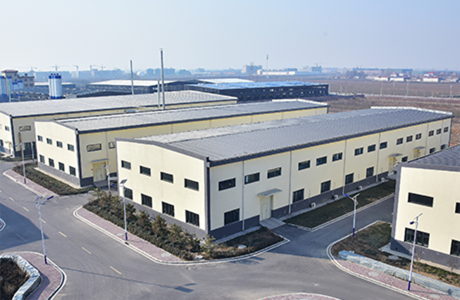- Afrikaans
- Albanian
- Amharic
- Arabic
- Armenian
- Azerbaijani
- Basque
- Belarusian
- Bengali
- Bosnian
- Bulgarian
- Catalan
- Cebuano
- Corsican
- Croatian
- Czech
- Danish
- Dutch
- English
- Esperanto
- Estonian
- Finnish
- French
- Frisian
- Galician
- Georgian
- German
- Greek
- Gujarati
- Haitian Creole
- hausa
- hawaiian
- Hebrew
- Hindi
- Miao
- Hungarian
- Icelandic
- igbo
- Indonesian
- irish
- Italian
- Japanese
- Javanese
- Kannada
- kazakh
- Khmer
- Rwandese
- Korean
- Kurdish
- Kyrgyz
- Lao
- Latin
- Latvian
- Lithuanian
- Luxembourgish
- Macedonian
- Malgashi
- Malay
- Malayalam
- Maltese
- Maori
- Marathi
- Mongolian
- Myanmar
- Nepali
- Norwegian
- Norwegian
- Occitan
- Pashto
- Persian
- Polish
- Portuguese
- Punjabi
- Romanian
- Russian
- Samoan
- Scottish Gaelic
- Serbian
- Sesotho
- Shona
- Sindhi
- Sinhala
- Slovak
- Slovenian
- Somali
- Spanish
- Sundanese
- Swahili
- Swedish
- Tagalog
- Tajik
- Tamil
- Tatar
- Telugu
- Thai
- Turkish
- Turkmen
- Ukrainian
- Urdu
- Uighur
- Uzbek
- Vietnamese
- Welsh
- Bantu
- Yiddish
- Yoruba
- Zulu
11 月 . 01, 2024 02:46 Back to list
Effective Deworming Treatments for Humans to Ensure Optimal Health and Wellness
Human Deworming Medication An Overview of Importance and Effectiveness
Deworming medications play a crucial role in maintaining human health, particularly in regions where parasitic infections are prevalent. Intestinal worms, such as roundworms, hookworms, and tapeworms, can lead to a range of health issues, including malnutrition, anemia, and impaired growth in children. It is essential to understand the types of these medications, their applications, and the ongoing efforts to combat parasitic infections globally.
Types of Deworming Medications
There are several classes of deworming medications, each targeting specific types of parasites. The most commonly used drugs include Albendazole, Mebendazole, Ivermectin, and Praziquantel. Albendazole and Mebendazole are typically effective against roundworms and hookworms, while Praziquantel is primarily used to treat schistosomiasis and tapeworm infections. Ivermectin has gained prominence for its effectiveness against various nematodes and other parasites, making it a versatile choice in treatment regimens.
The Importance of Deworming
Regular deworming is essential for maintaining public health, especially in developing countries where sanitation and hygiene may be inadequate. Parasitic infections can substantially impact a person's nutritional status. For instance, children infected with worms are at risk of stunted growth and cognitive impairments due to nutrient deficiencies caused by these parasites. Furthermore, hookworms can lead to chronic anemia, significantly impacting an individual's overall well-being.
human deworming medication

Extensive deworming programs, particularly in schools, have shown remarkable success in reducing the prevalence of intestinal worms. These initiatives not only improve health outcomes but also enhance educational performance by ensuring that children can attend school without the debilitating effects of parasitic infections.
Challenges in Deworming
Despite the benefits of deworming medications, several challenges persist. Access to these medications can be limited in low-income regions, primarily due to economic barriers and a lack of health infrastructure. Moreover, there is a growing concern regarding drug resistance, which may decrease the effectiveness of commonly used medications over time. Continuous research and monitoring are crucial to address these issues and ensure that deworming campaigns remain effective.
Future Directions
To combat the threat of parasitic infections effectively, it is imperative to combine deworming medication with broader public health strategies. Improving sanitation, promoting hygiene practices, and ensuring clean water supply are vital components of a comprehensive approach to control intestinal worm infections. Moreover, educating communities about the importance of deworming and actively involving them in programs can lead to more sustainable outcomes.
In conclusion, human deworming medications are a vital part of public health strategies aimed at reducing the burden of parasitic infections. While significant strides have been made in the development and distribution of these medications, ongoing efforts are necessary to overcome challenges and protect vulnerable populations. By integrating medical treatment with education and improved sanitation, we can pave the way for a healthier future free from the detrimental effects of intestinal worms.
-
The Power of Radix Isatidis Extract for Your Health and Wellness
NewsOct.29,2024
-
Neomycin Sulfate Soluble Powder: A Versatile Solution for Pet Health
NewsOct.29,2024
-
Lincomycin Hydrochloride Soluble Powder – The Essential Solution
NewsOct.29,2024
-
Garamycin Gentamicin Sulfate for Effective Infection Control
NewsOct.29,2024
-
Doxycycline Hyclate Soluble Powder: Your Antibiotic Needs
NewsOct.29,2024
-
Tilmicosin Premix: The Ultimate Solution for Poultry Health
NewsOct.29,2024













